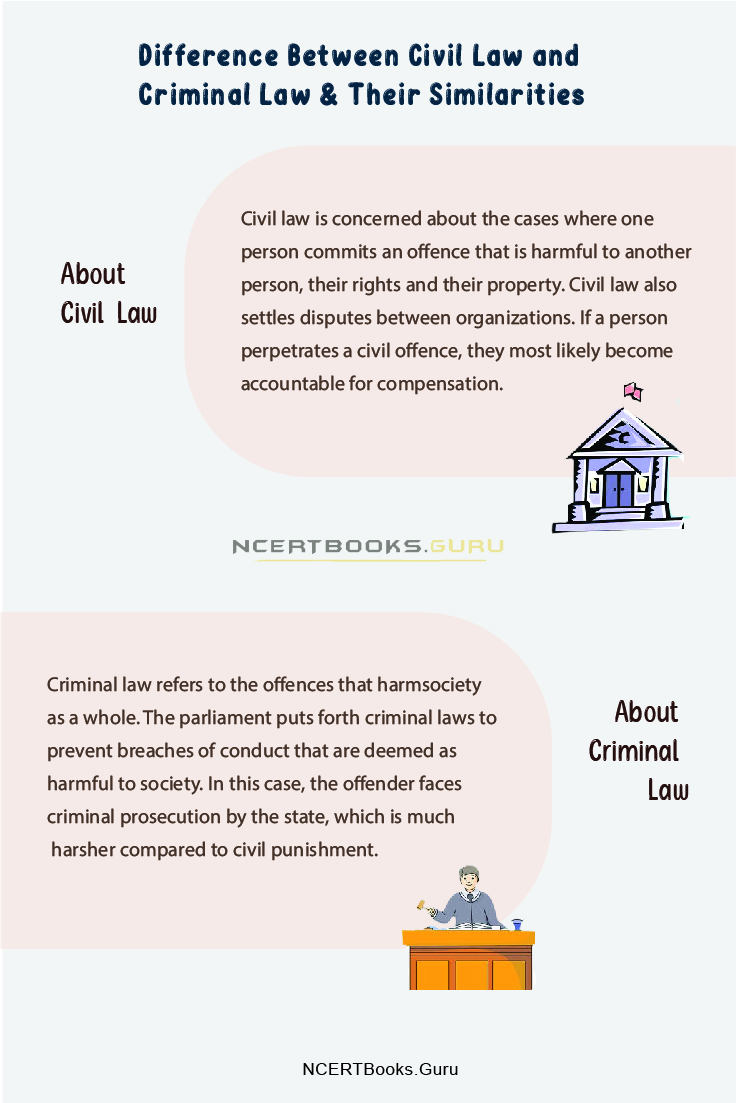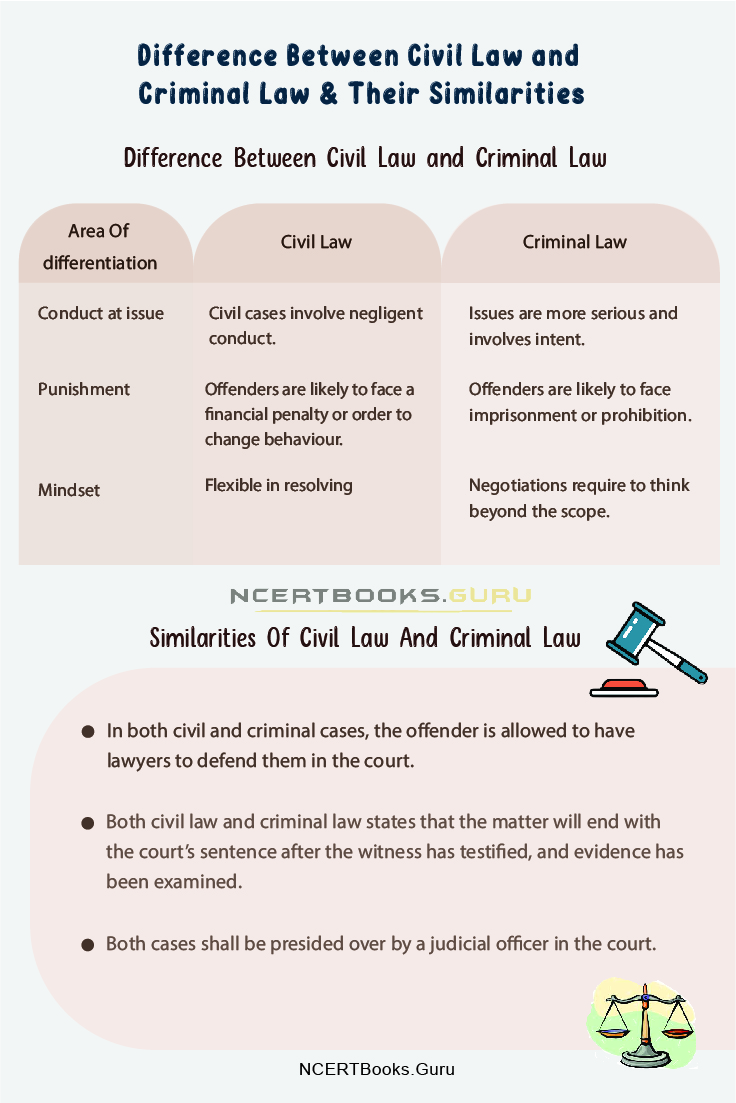Introduction
Criminal and civil laws seek to pursue justice for the individual people and the state. Criminal law seeks to punish for an offence while civil law seeks to remedy the injured part. Both the laws work simultaneously to maintain law and order in the state level and are very important.
You can also find differences between articles on various topics that you need to know. Just tap on the quick link available and get to know the basic differences between them.
What is the Difference Between Civil Law and Criminal Law?
About Civil Law
Civil law is concerned about the cases where one person commits an offence that is harmful to another person, their rights and their property. Civil law also settles disputes between organizations. If a person perpetrates a civil offence, they most likely become accountable for compensation.
The standard of proof concerning civil law cases is “the balance of probabilities.” However, they use the higher standard of “beyond reasonable doubt” for certain disciplinary proceedings for solicitor misconduct.
About Criminal Law
Criminal law refers to the offences that harmsociety as a whole. The parliament puts forth criminal laws to prevent breaches of conduct that are deemed as harmful to society. In this case, the offender faces criminal prosecution by the state, which is much harsher compared to civil punishment.
The standard of proof concerning criminal law cases is “beyond a reasonable doubt” or “certain so you can be sure.” Some examples include murder, assault etc.

Difference Between Civil Law and Criminal Law
| Area Of Differentiation | Civil Law | Criminal Law |
| Conduct at issue | Civil cases involve negligent conduct. | Issues are more serious and involves intent. |
| Punishment | Offenders are likely to face a financial penalty or order to change behaviour. | Offenders are likely to face imprisonment or prohibition. |
| Statute of limitations | Specific statute of limitations present | Criminal offences like murder might not have a statute of limitation. |
| Burden of proof | Usually based on “prepondering of evidence” or “clear and convicting standards.” | A Crime committed “beyond a reasonable doubt.” |
| Mindset | Flexible in resolving | Negotiations require to think beyond the scope. |
| Filed by | Plaintiff | Government |
| Starts with | Filing a petition to the respective court by the plaintiff. | A Complaint is lodged to the police who investigate the case. |
| Case examples | Bankruptcy | Assault |

Similarities Of Civil Law And Criminal Law
- In both civil and criminal cases, the offender is allowed to have lawyers to defend them in the court.
- Both civil and criminal laws are about the violation of federal and state rules and seek justice.
- Both civil law and criminal law states that the matter will end with the court’s sentence after the witness has testified, and evidence has been examined.
- Both cases shall be presided over by a judicial officer in the court.
- Both cases allow offenders to plead for innocence by voicing so or remaining silent.
- Both civil laws and criminal laws offer momentary relief to victims.
Frequently Asked Questions on Difference Between Civil Law And Criminal Law
Question:
What is the basic difference between civil law and criminal law?
Answers:
In civil law, the aggrieved party sues the other party, whereas an individual is prosecuted for committing a crime in criminal law.
Question:
What are some examples of civil and criminal cases?
Answers:
Civil cases include custody disputes, breach of contract, property damage etc. Criminal cases include homicide, conspiracy, assault etc.
Question:
How to start a case in civil law and criminal law?
Answers:
For starting a case in civil law, the plaintiff puts forth a petition to the respective court, and for criminal law, the investigator of the case is first reported.
